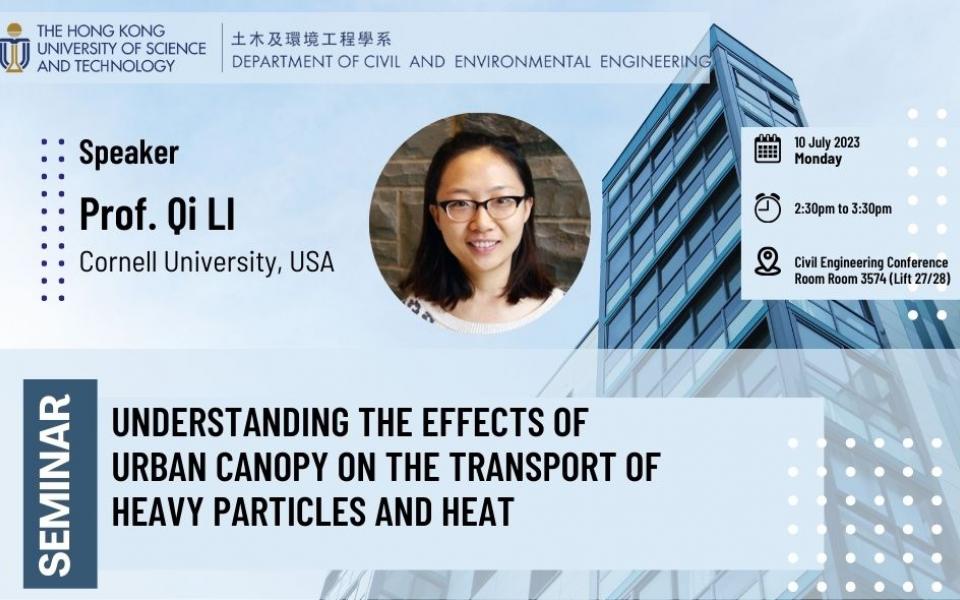Civil Engineering Departmental Seminar - Understanding the effects of urban canopy on the transport of heavy particles and heat
Supporting the below United Nations Sustainable Development Goals:支持以下聯合國可持續發展目標:支持以下联合国可持续发展目标:
Understanding the effects of urban canopy on the transport of heavy particles and heat
The presence of urban canopy affects the transport of particles and scalars. This talk aims to illustrate with two examples of how urban canopy affects the flows and transport at different spatial scales. In the first part of the talk, we focus on heavy particles, such as airborne microplastics, which can be a health hazard in the lower urban atmosphere. We discuss how buildings affect the transport of spatially organized sources of microplastics. Simulations show that within the canopy sub-layer, the gravitational settling effect of the particles becomes more significant because of the reduced wind. Because of that, the escape fraction of particles is smaller than in cases with no buildings and it decreases with increasing building height and increasing building density. In the second part of the talk, we discuss the transport of heat in the context of mixed convection for an idealized coastal-rural-urban setting by conducting large-eddy simulations. To further understand the impact of urban canopy, a model based on the mean momentum and energy transport equations is proposed to explain the different mechanisms that urban canopy, thermal heterogeneity and mean advection contribute to the canopy UHI effect. The model can well explain the trend of the simulated results, and implies that overlooking the effect of urban canopy can underestimate the UHI effect by 0.3 - 0.5 K and miss the overall flow structures and temperature field in an urban coastal environment.
Dr. Qi Li is an assistant professor in the School of Civil and Environmental Engineering at Cornell University. She completed her Ph.D. in Civil and Environmental Engineering at Princeton University in 2016. Prior to joining Cornell University, she was a post-doctoral researcher in the Water Center at Columbia University working on numerical simulations of atmospheric turbulence. Her research focuses on developing and applying computational models to improve the understanding of turbulent flows and transport of scalars in the lower atmosphere, especially over complex surfaces, such as the urban environment. She is the recipient of the NSF CAREER award
